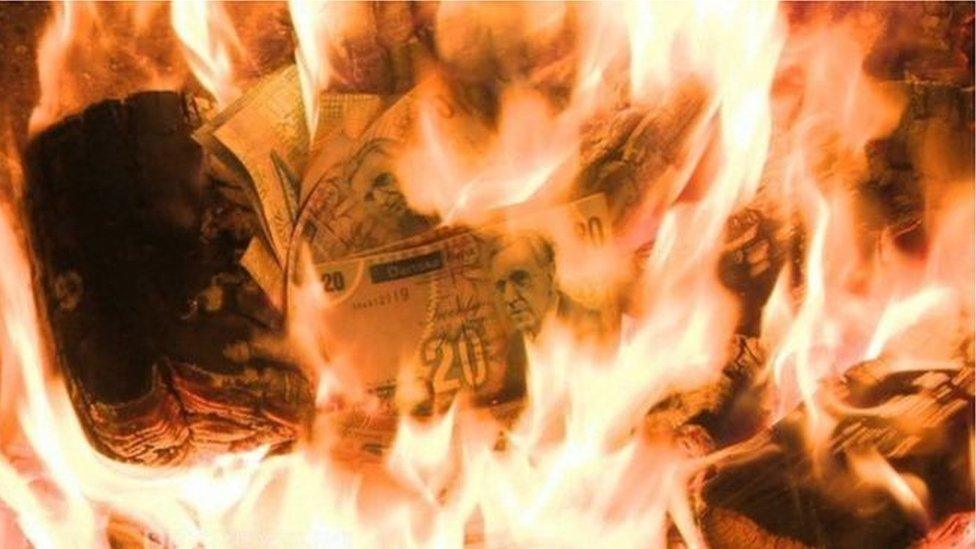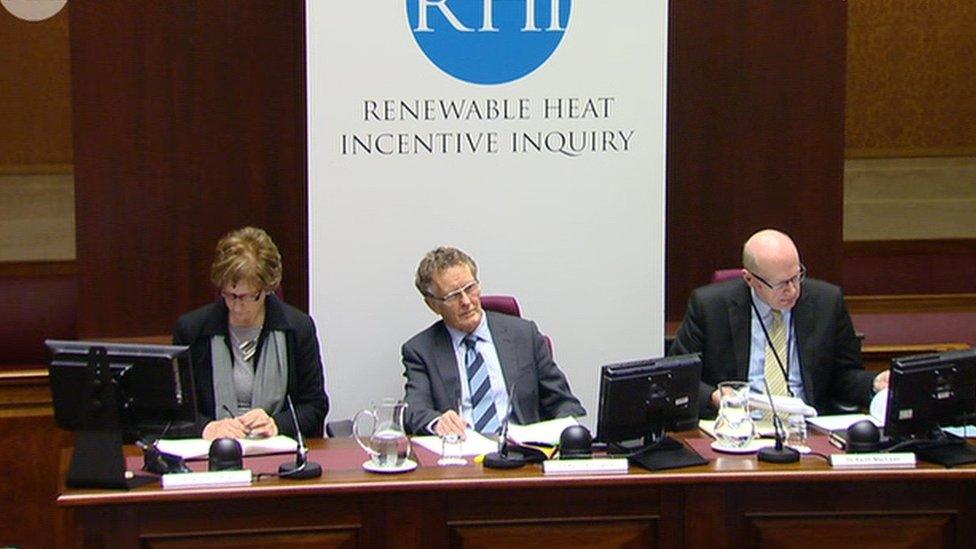RHI inquiry: Official 'did not enjoy' running scheme
- Published

Davina McCay acted up to head the Renewable Heat Branch of the Department for Enterprise Trade and Investment between May and July 2014
A civil servant who temporarily ran the department dealing with the Renewable Heat Incentive (RHI) scheme has said she did not enjoy it.
Davina McCay acted up to head the Renewable Heat Branch of the Department for Enterprise Trade and Investment (DETI) between May and July 2014.
She was speaking at the public inquiry into Northern Ireland's flawed green energy scheme.
She said she was relieved when told her secondment would not be made permanent.
The public inquiry was set up last year to investigate the RHI scheme after costs spiralled.
The scheme was an initiative offering financial incentives to encourage businesses to switch to using renewable fuels to generate heat.
But critical flaws meant that its claimants could earn substantial returns, far greater than intended.
That came at the taxpayer's expense and the most recent estimate put the projected overspend at £700m over 20 years, up from an original figure of £490m.
'No sense of urgency'
The inquiry's counsel said he would ask Ms McCay about a seven-week-period "which she probably regrets having had anything to do with".
She told the inquiry that at the time she was in charge the focus was in extending the RHI scheme to domestic properties rather than reviewing the non-domestic scheme, as had been promised.
She said there had been no proper project management system for the non-domestic scheme.
She said the department was "extremely busy" with a high volume of calls from the renewables industry at a time when experienced staff had either left or were leaving the office.
The civil servant said she felt a little "panicky" at the amount of work left for her to undertake.
A handover note from an experienced colleague, Peter Hutchinson, had a list of urgent actions including a review of tariffs to prevent excessive payments.
Ms McCay said she does not recall Mr Hutchinson emphasising the need for the tariff review with her.
The then head of Energy Division, John Mills, has told the inquiry in a written statement that there was no sense of urgency from renewable heat staff about the scheme.
Chairman Sir Patrick Coghlin suggested that Mr Mills might have got a different impression as a result of the handover from his predecessor Fiona Hepper.
'Overwhelmed... without adequate resources'
Later, Ms McCay told the inquiry she had promised the so-called whistleblower Jeanette O'Hagan that a review of biomass tariffs was planned.
Ms O'Hagan had emailed the department again in May 2014 because she felt earlier concerns she had flagged up had not been addressed.
Ms McCay told her the review would be carried out "in the coming months" and that the issues raised were "on our radar".
But despite the promises to Ms O'Hagan, other issues had taken precedence in the summer of 2014 and the promised review did not happen, she said.
Sir Patrick Coghlin asked her whether it was fair to say she had been "overwhelmed with work without adequate resources" and the net result had been that nothing was done about the review.
"That's a fair reflection, yes," said Ms McCay.
Nine months later Ms O'Hagan again emailed to ask about the tariff review.
Ms McCay had moved on and forwarded the email to a colleague Seamus Hughes who had taken over in the renewable heat branch.
Mr Hughes told Ms O'Hagan that a cost control known as a tiered tariff was not now being considered as part of the next phase of the scheme.
But he said it might be introduced later.
Inquiry counsel Joseph Aiken characterised this as the promised tariff review being "crashed into a wall".
- Published2 February 2018
